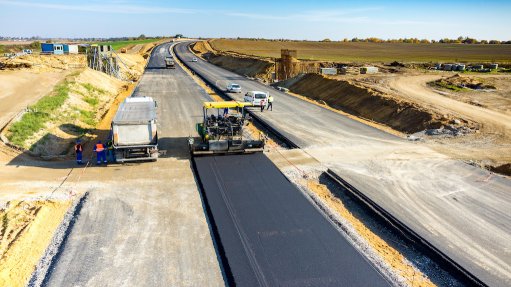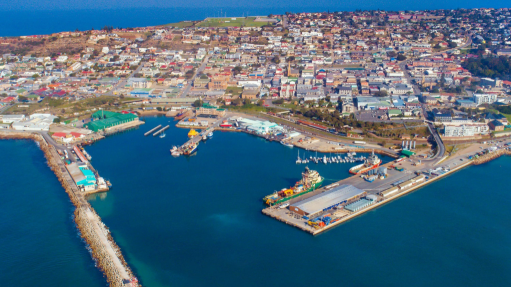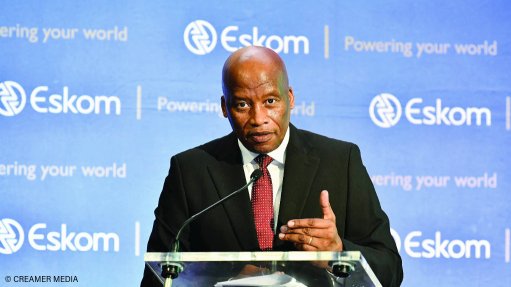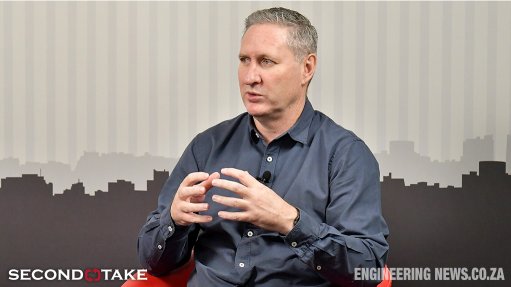A greener future for Africa - engineering the energy transition to lead the way to sustainability
This article has been supplied by the author and has not been written or solicited by Creamer Media. It may be available only for a limited time on this website.
By: Mamiki Matlawa - Group Business Development Executive at ACTOM
Africa, a continent blessed with abundant natural resources and vast potential, stands at a critical juncture in its energy future. The global push towards a cleaner, more sustainable energy mix, intensified by the outcomes of COP26 (the 2021 United Nations Climate Change Conference), has ignited a renewed focus on renewable energy adoption across the continent. South Africa, a major player in Africa's energy sector, has historically relied heavily on coal-fired power plants.
However, we are now embarking on a significant energy transition, balancing the need for reliable energy supply with the imperative to reduce greenhouse gas emissions. By strategically investing in renewable energy technologies and adapting traditional infrastructure through engineering ingenuity, South Africa aims to position itself as a leader in Africa's green energy movement.
South Africa's balancing act
South Africa committed to reducing greenhouse gas emissions, increasing renewable energy, and securing climate finance at COP26, demonstrating its ambition to transition to a low-carbon economy. Practically speaking, however, South Africa's approach to this energy transition is a delicate balancing act between immediate energy needs and long-term sustainability goals. While strides have been made in renewable energy adoption, particularly in solar and wind power, South Africa continues to rely heavily on coal-fired power plants. This dual approach reflects the complex interplay between energy security, economic development, and environmental concerns.
Despite this precarious balancing act to meet current needs while transitioning to cleaner energy, South Africa's strategic investments in renewable energy infrastructure and its increasingly skilled workforce position it favourably for a more sustainable future. Having secured a historic $8.5 billion climate finance package from developed countries to accelerate its transition away from coal and towards renewable energy sources, South Africa is well positioned to integrate renewable energy sources into its existing grid to reduce its carbon footprint and improve air quality. Moreover, the abundance of natural resources, including solar, wind, and biomass, offer significant potential for further development.
A cleaner energy pathway for Africa
Engineering innovation is at the heart of Africa's energy transition. As renewable energy projects proliferate, engineers are confronted with unique challenges, such as integrating intermittent renewable sources into the grid, optimising energy storage solutions, and ensuring the reliability of power supply. Traditional infrastructure, designed for fossil fuel-based power generation, must be adapted to accommodate the fluctuating nature of renewable energy, which will necessitate advancements in grid management systems, energy storage technologies, and power electronics.
Digital monitoring systems are revolutionising the energy sector. By leveraging advanced sensors, data analytics, and remote-control capabilities, engineers can monitor and control energy infrastructure in real-time. The integration of digital technologies, such as artificial intelligence and machine learning, can optimise energy distribution and enhance grid resilience, allowing for predictive maintenance, early fault detection, and efficient energy management. In addition, digital solutions can better facilitate the integration of distributed energy resources, such as rooftop solar panels and community energy systems, into the broader energy mix.
Creating a sustainable future
The energy transition in Africa offers immense potential for job creation and economic growth. As renewable energy projects expand, there is a growing demand for skilled engineers, technicians, and workers in various sectors, across installation, maintenance, and operations. Furthermore, the development of a domestic renewable energy industry will stimulate innovation, entrepreneurship, and local manufacturing. Africa's abundant natural resources, particularly in hydropower and hydrogen, position the continent as a global leader in clean energy. By investing in research and development, building capacity, and fostering international partnerships, African nations can capitalise on these opportunities and contribute to a more sustainable future, emerging as a global leader in the clean energy revolution.
Comments
Press Office
Announcements
What's On
Subscribe to improve your user experience...
Option 1 (equivalent of R125 a month):
Receive a weekly copy of Creamer Media's Engineering News & Mining Weekly magazine
(print copy for those in South Africa and e-magazine for those outside of South Africa)
Receive daily email newsletters
Access to full search results
Access archive of magazine back copies
Access to Projects in Progress
Access to ONE Research Report of your choice in PDF format
Option 2 (equivalent of R375 a month):
All benefits from Option 1
PLUS
Access to Creamer Media's Research Channel Africa for ALL Research Reports, in PDF format, on various industrial and mining sectors
including Electricity; Water; Energy Transition; Hydrogen; Roads, Rail and Ports; Coal; Gold; Platinum; Battery Metals; etc.
Already a subscriber?
Forgotten your password?
Receive weekly copy of Creamer Media's Engineering News & Mining Weekly magazine (print copy for those in South Africa and e-magazine for those outside of South Africa)
➕
Recieve daily email newsletters
➕
Access to full search results
➕
Access archive of magazine back copies
➕
Access to Projects in Progress
➕
Access to ONE Research Report of your choice in PDF format
RESEARCH CHANNEL AFRICA
R4500 (equivalent of R375 a month)
SUBSCRIBEAll benefits from Option 1
➕
Access to Creamer Media's Research Channel Africa for ALL Research Reports on various industrial and mining sectors, in PDF format, including on:
Electricity
➕
Water
➕
Energy Transition
➕
Hydrogen
➕
Roads, Rail and Ports
➕
Coal
➕
Gold
➕
Platinum
➕
Battery Metals
➕
etc.
Receive all benefits from Option 1 or Option 2 delivered to numerous people at your company
➕
Multiple User names and Passwords for simultaneous log-ins
➕
Intranet integration access to all in your organisation




















